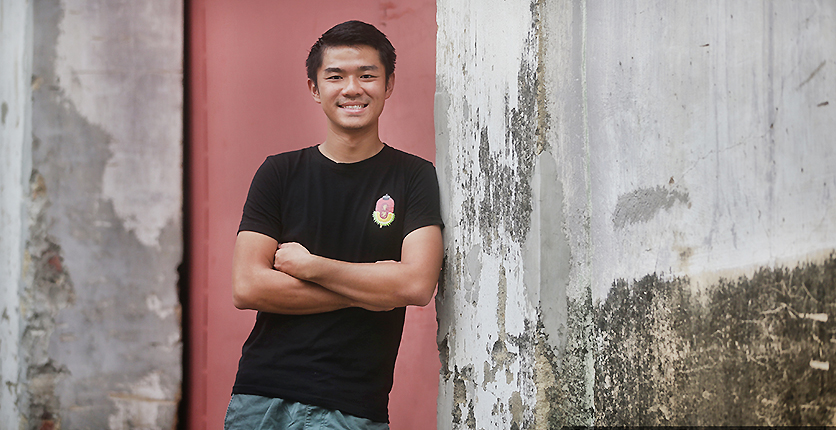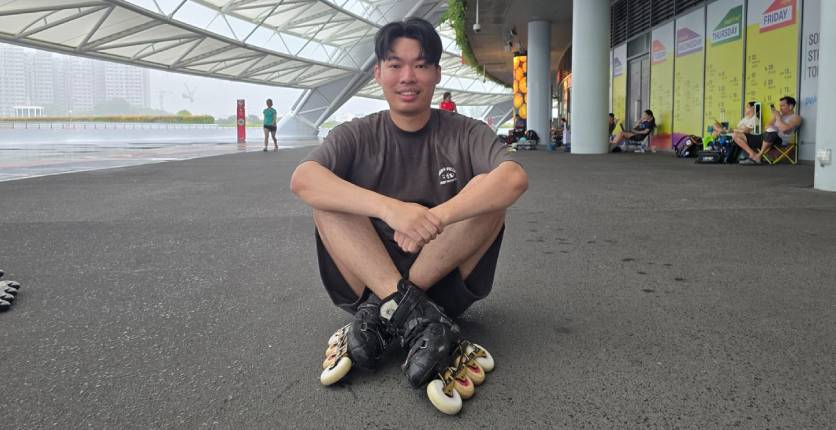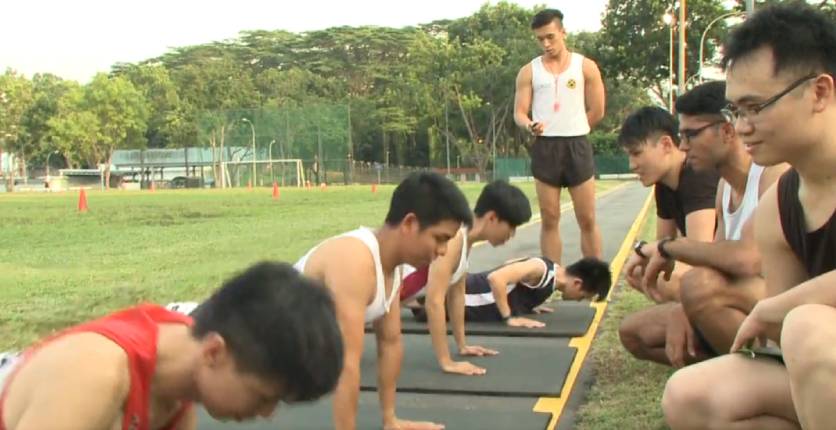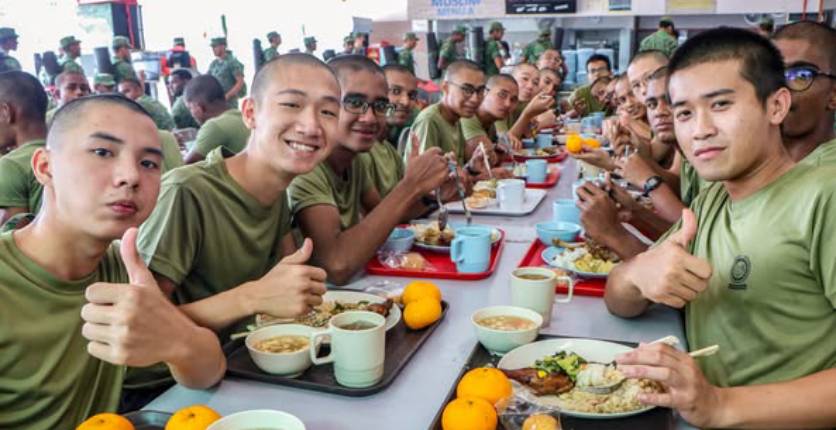During his National Service days, Cai Yinzhou laid bridges that helped friendly forces overcome obstacles.
Today, the third sergeant (NS) with the combat engineers lays bridges of the metaphorical kind – those that close knowledge gaps and foster greater levels of cultural understanding.
Besides being the founder of social enterprise Citizen Adventures, a tour company that allows participants to learn about the social ecosystems of Singapore neighbourhoods, Cai Yinzhou is also the brainchild of Backalley Barbers, a community initiative that has been providing free haircuts to migrant workers since 2014.
A supporter of migrant workers in Singapore, Cai was among the many volunteers from the Covid-19 Migrant Support Coalition who lent a helping hand to those trapped in their dormitories during the pandemic.
His contributions to society have not gone unnoticed. In 2017, Cai was conferred the Singapore Youth Award. Last year, he was nominated as one of the candidates for the Straits Times Singaporean of the Year award.
We spoke to Cai to learn more about what drives him in his quest to make society a better place for not just Singaporeans, but also for the foreigners who have helped build it.

How did the idea for Geylang Adventures (now called Citizen Adventures) come about?
There has always been a common misconception that Geylang is a dangerous place because it’s a red-light district and there are many “dangerous” people lurking around the corners. But having lived here all my life, I can say with much certainty that there’s so much more to this district.
Geylang Adventures was created from my desire to show people the whole picture, that this place is not as one-dimensional as it seems. I wanted to show them that migrant workers congregate here not because it is a melting pot of shady characters but because they just needed a place to hang out, that even the sex workers here are humans who have the same aspirations and needs as everyone else. I wanted to show the world the dynamics involved in this space and the true nature of these Geylang residents, many of whom aren’t just my neighbours but my friends.
What are the most common misconceptions about migrant workers?
People often think migrant workers are dirty and dangerous, that they increase crime rates, that they’re in Geylang only to find sex workers.
Some also think that these workers are poorly educated but that’s not the case. In fact, most of them have a degree! I know of a pair of Bangladeshi twins who had to give up completing their medical degrees so that they could come to Singapore to work and support their family after their father had a stroke.

Why do you think it is important that people learn about the social ecosystems behind the neighbourhoods you conduct tours in?
I think most of us in Singapore lead comfortable lives and hence don’t think much about the things happening around us. It is important that people recognise how migrant workers are a core part of the social ecosystems that we are a part of and understand that social issues are far more complex than we think it is.
What was your first interaction with migrant workers? Do you consider yourself an extroverted person who befriends others easily?
I remember one of my early interactions with them was over a weekend when I was feeling bored after booking out from camp. I then decided to ask this group of migrant workers living near my house if I could join them in their game of badminton. That’s how my friendships with migrant workers started. I wouldn’t say I’m a very extroverted person. Many of my neighbours in Geylang happen to be migrants so it’s only natural that I got to know and befriend them.
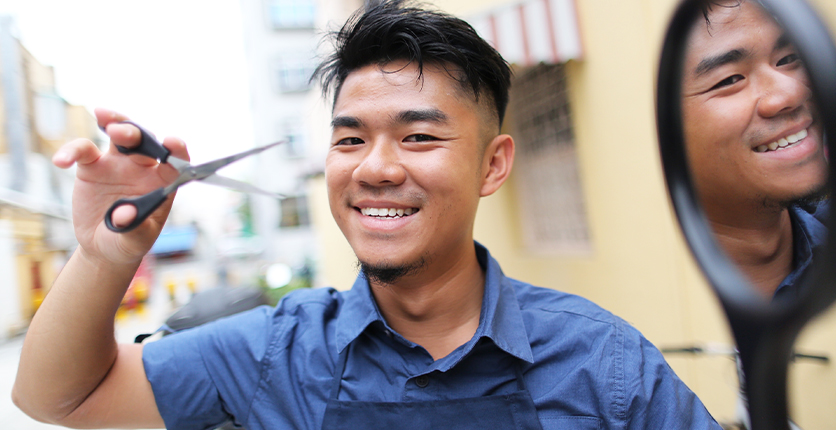
How did Backalley Barbers come about? Why did you decide to do this?
It started because one of my friends, who is a migrant worker, decided to not cut his hair for some time so that he could save money. Because of this, I looked up barbering tutorials on YouTube so I could offer him a free haircut.
Eventually, I realised that there are many migrant workers in Geylang like him. For us volunteers at Backalley Barbers, this initiative represents more than just a haircut – but a medium for conversations to understand their lives, aspirations and struggles.
What lessons have you learned from helping migrant workers through the years?
I learn something new from migrant workers all the time. What is always humbling is hearing about what they are going through. We may oftentimes be of a similar age but the kind of struggles they grapple with can be very different. They have taught me how to be thankful for what I have and not to take things in life for granted.
I find that the narrative of sacrifice is also very common among these workers. Many of them have given up a lot to move to Singapore to work. For some of them, this is born out of the hope of a better life – not for themselves but for their families.
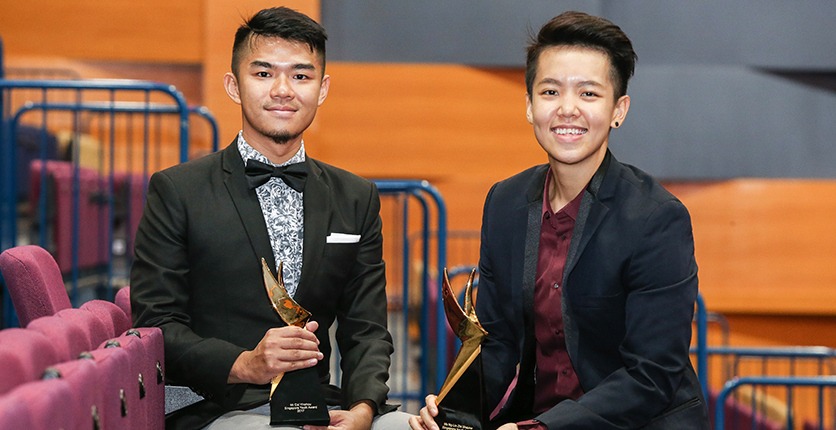
Doing good in society – is this something you were taught when you were young?
My parents had on some occasions exemplified the importance of volunteering but this only grew on me during my National Service days. I was quite the apathetic person in school but going to NS allowed me to be exposed to the world and the diversity of people from different backgrounds. This helped me to become more receptive to befriending people like migrant workers in my neighbourhood.
What skills did you pick up in NS that have proven to be useful in your current career?
I was a third sergeant in the Combat Engineers and being in this role taught me a few things about leadership.
There was one incident in which I had to communicate to the parents of a soldier who got injured. This taught me that we should never be quick to point fingers or assign blame, and how to be empathetic yet tactful in such situations. More importantly, it also taught me a lot about compassion and care for others around.
Other things I picked up as a leader were speaking up for the voiceless when needed and being accountable to others.
What drives you to speak up about social issues?
For me it’s about recognising the opportunity to do something and knowing the stakes involved in making this country a better place. We all have a role to play in making this society better. To be silent is to be implicitly involved in the perpetuation of the inequalities that are existent.
Has anyone questioned you about why you do what you do?
In the beginning, my mum did ask why I wasn’t getting a “proper” job, why I’m always helping others instead of myself, and how I was going to survive financially in Singapore. The concept of helping is generally still quite novel in Singapore.
I knew my mother was just being very practical, and I didn’t take her criticisms too close to heart. I just nodded along to whatever she said and continued doing what I believed in!
Have you ever had second thoughts about what you’re doing in life?
I’m really glad things worked out. Even though I don’t earn as much as my peers, I’m able to lead a decent life while doing something I find meaningful as a career, and my family has come to accept that I’m the kind of person who believes that you should do something if you really believe in it, even though everyone else might not feel the same way.
I guess you might feel you have less if you constantly compare what you have to what others appear to have on social media. But I hardly ever think about such things!
How do you think we should help or engage with migrant workers? Share with us at magnsman@sph.com.sg!
Photos: The Straits Times
